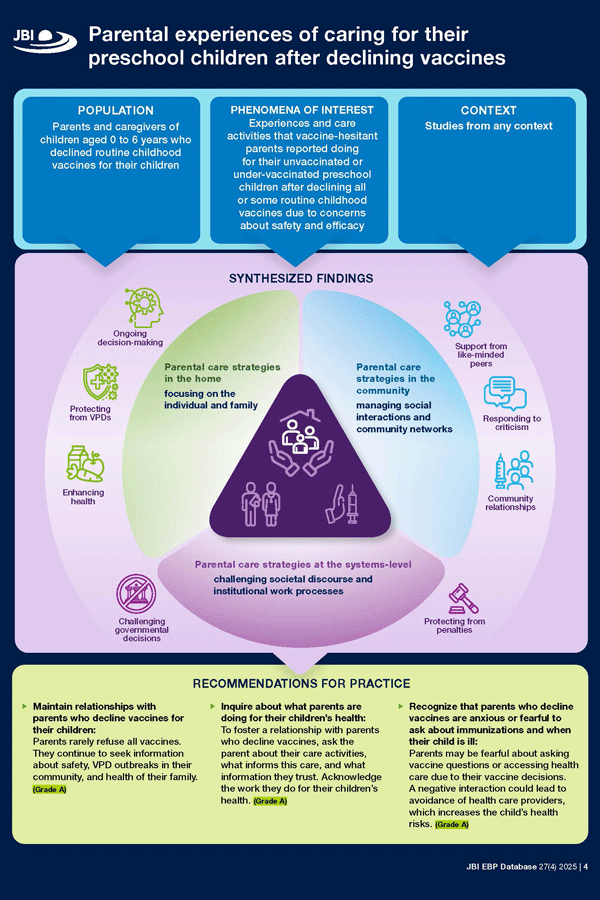
Infectious Diseases and Infection Control EBP Resources
This month, JBI features the Infectious Diseases and Infection Control specialty fields in the JBI EBP Database, highlighting free access resources relating to both fields
The JBI EBP Database Infectious Diseases and Infection Control specialty fields offer 580+ evidence-based resources, including 495 Evidence Summaries, 85 Recommended Practices and 2 Best Practice Information Sheets. These resources are user-friendly, evidence-based resource recommendations relevant for low- middle- and high-income countries, wherever possible. Topics range from endemic and pandemic infectious diseases, such as COVID-19, Malaria, Mpox and Measles, to local infection control policies such as effective cleaning of surfaces and sterilisation of equipment.
Malaria is a prevalent acute parasitic disease in tropical and subtropical regions. Each year, over 125 million international travellers visit approximately 100 countries where malaria is endemic, resulting in around 25,000 reported cases annually. Vector control is the main malaria prevention strategy for people living in malarial-endemic areas. For those travelling into malarial-endemic areas, prophylactic medication may be prescribed, and this decision should be made between the individual and the healthcare professional. Antimalarial resistance patterns in the malarial-endemic area should guide the prescription of the most appropriate prevention management. Read more in the free access JBI Evidence Summary regarding the safety and efficacy of drugs to prevent malaria in travellers.
Pneumococcal infection can cause severe morbidity and mortality, particularly in individuals who are immunocompromised or have certain chronic conditions, such as Pulmonary Disease, Cardiovascular Disease, Liver Disease, Diabetes Mellitus, severe Asthma, and in older adults. Both the pneumococcal conjugate vaccine (PCV) and pneumococcal polysaccharide vaccine (PPV) are non-live vaccines. They work by stimulating the immune system to produce antibodies which help the body recognise and respond to the bacteria if encountered in the future. Read the free access JBI Recommended Practice for the contraindications, precautions, and best practice recommendations for administering the vaccine for Pneumococcal infection in adults.
Vaccine hesitancy refers to uncertainty or reluctance to vaccinate. For parents of preschool children, the decision to decline some or all vaccines is influenced by their perception of the benefits and risks of routine vaccination. The parent’s decision to decline vaccinations for their child may change, and building positive relationships with healthcare professionals is crucial to support informed decision-making and promote the child’s health and well-being. Read the free access 4-page JBI Best Practice Information Sheet, which summarises the evidence derived from a qualitative systematic review on parental experiences of caring for their preschool children after declining vaccines.

These resources in the JBI EBP Database are available for healthcare professionals to implement best practices and enhance health outcomes across the many areas of infection control, infection prevention and infectious disease management.
The JBI EBP Database houses 5,000+ up-to-date, evidence-based resources across 30+ specialty fields, providing more Nursing and Allied Health content than any other clinical decision support product.
Additional JBI Resources
Huel C, MacKinnon K, Harding J, Haghiri-Vijeh R, Gordon C, MacDonald SE. Parental experiences of caring for their preschool children after declining vaccines: a qualitative systematic review. JBI Evid Synth. 2025;23(2): 244-332

